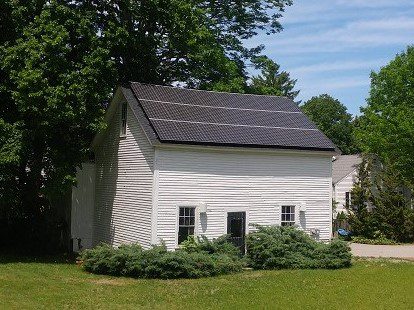
September 19, 2022 By John Borger, Hingham Net Zero
In our last post, we urged you to attend the Climate Action Planning Committee’s upcoming public forum on Tuesday, 9/20 (this is a virtual session via Zoom – you can find log-in information here:(https://www.hingham-ma.gov/Calendar.aspx?EID=7300&month=9&year=2022&day=19&calType=0). We thought it might help you participate more effectively if you have a sense of what Hingham’s plan will entail.
Concord, MA is a “peer” town for Hingham, comparable in overall population, percent with a college degree, median household income and median value of owner occupied housing.
In June 2020, Concord published Sustainable Concord, its “Climate and Resiliency Plan” (you can peruse the plan at this link: https://concordma.gov/2503/Climate-Action-and-Resilience-Plan). While Hingham’s plan will reflect its own unique identity, characteristics, challenges and resources, it will undoubtedly have similarities in areas of primary focus and approach. So let’s take a moment to explore Concord’s climate action plan.
Concord focused its plan on five primary areas of concern and specified for each a key, long-term goal in the form of a “vision statement” which expresses the desired end state. For example:
1. BUILT AREA (municipal/other buildings, dwellings, roads, parking areas, other infrastructure)
Goal: Concord’s buildings and solid waste system minimize GHG (greenhouse gas) emissions and are resilient to a changing climate.
2. ENERGY (Concord owns its electric utility - CMLP)
Goal: Concord’s electricity is 100% carbon-free, reliable and affordable.
The plan articulates several enabling goals formulated to achieve the vision for each of the five primary areas of focus. For example, to actualize its vision for ENERGY, Concord includes these specific goals:
- Redesign electricity rates to support energy conservation, peak load management, electrification, and
renewable energy generation. - Provide incentives for businesses and homeowners to invest in renewable energy.
- Shift CMLP’s electricity supply to 100% carbon-free sources by 2030.
Concord’s plan breaks out each of these goals in turn into more detailed action steps.
Their energy-related goals have special relevance for our town, since Hingham also owns and runs its own electric utility. The plan organizes all its goals under one overarching objective: reduce greenhouse gas emissions 80% by 2050. (This objective reflects the position of the UN Intergovernmental Panel on Climate Change at the time Concord decided on its target; the IPCC’s goal is now 100%. Hingham’s goal, set later, in 2021, is to reach net zero emissions by 2040.) Concord based its plan on selected key data, including the primary sources of Concord’s emissions, rank ordered for maximum impact in reduction of emissions.
Concord’s plan also specifies who will deliver the results. The primary players are:
The Climate Action Advisory Board, which is tasked with providing strategic direction on how Concord can achieve its mitigation and adaptation goals. The Board is comprised of members of the community with expertise in climate, energy, sustainability, and adaptation. (In Hingham, we will probably see the Climate Action Planning Committee (CAPC) transition into a similar advisory committee to guide implementation of our plan.)
The Municipal Team, which includes municipal staff experts from departments and divisions including the school department, water and sewer division, facilities management, public works, fire, police, natural resources, electric utility, communications, planning, and town management.
For each of the five main areas of focus, and their associated goals, the plan specifies “champions” – town entities or departments assigned principal responsibility for each of these areas, as well as “key partners” – town, community and business entities that will collaborate with the champions to achieve each goal. Concord town administration includes a Director of Sustainability who promotes awareness in each municipal department of how it can better integrate long term sustainability into its function on an ongoing basis. (Hingham, along with Cohasset, is set to hire a Sustainability Coordinator to be shared between the two towns.)
Finally, Concord tried to be realistic. It structured its plan as a flexible roadmap for an initial five year planning horizon. It made provisions for periodic updates and adjustments as it implements the plan, measures results and assesses progress. Concord anticipates significant additional installments in the decades ahead. E.g., it may well decide to try to accelerate progress toward carbon neutrality as federal and state programs are implemented.
As noted above, Hingham is in the process of developing its own plan. Now that you better understand what a climate action plan entails, please plan to attend the Zoom forum on Tuesday, 9/20 and contribute your ideas.

